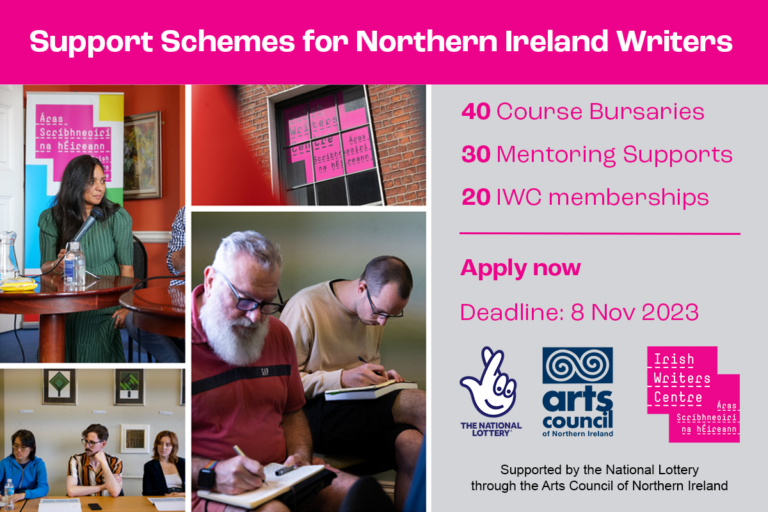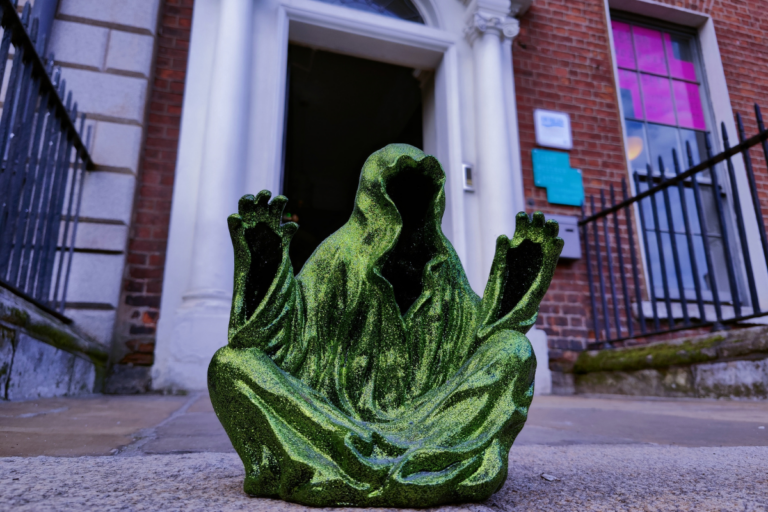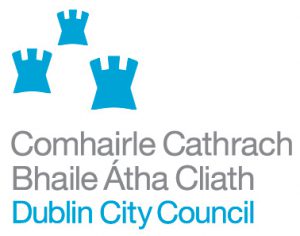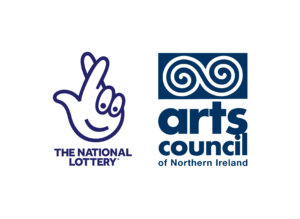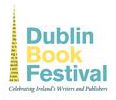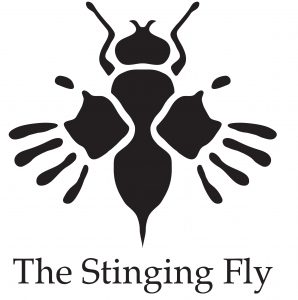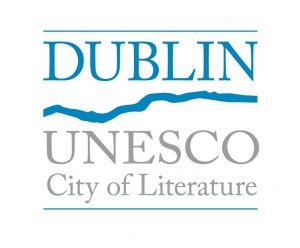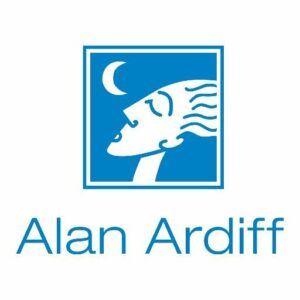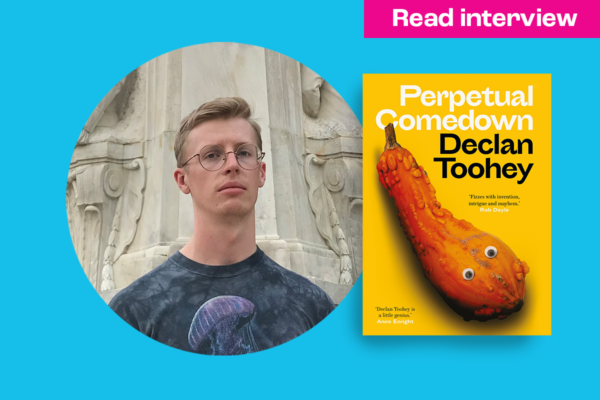
20 October, 2023
“The book I start with is never the book I finish with”: Declan Toohey on Perpetual Comedown, his literary influences and his success at the 2021 IWC Novel Fair
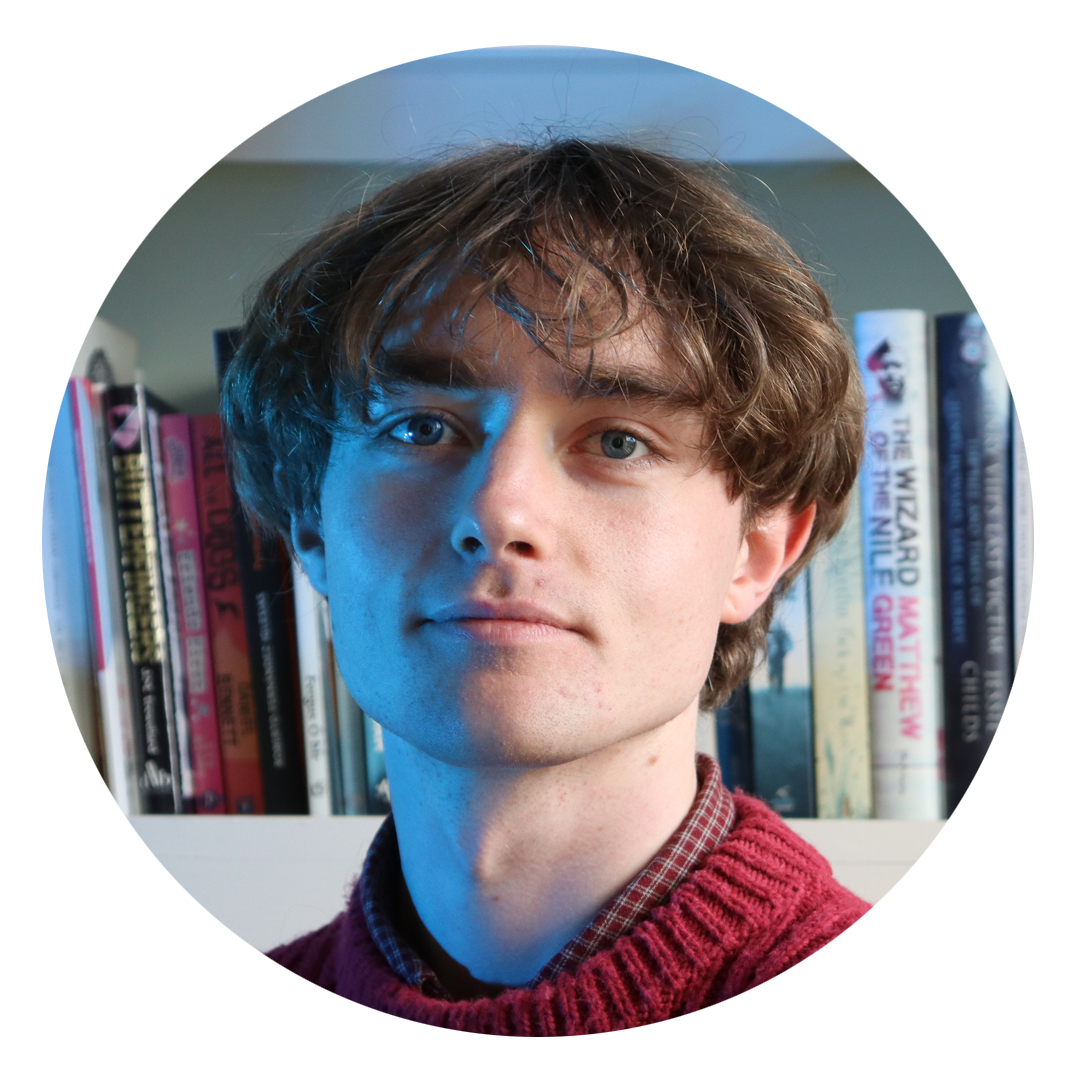
Interviewer: Jack Delaney
Jack Delaney is a writer and theatre-maker from County Meath. He joined the Irish Writers Centre as an Arts Administration Intern in March.
This year we have been conducting a series of interviews with Irish Writers Centre (IWC) Novel Fair past winners. In this, the fifth and final conversation in our series, we hear from novelist and 2021 winner Declan Toohey whose debut novel, Perpetual Comedown, was published earlier this year by New Island Books.
Perpetual Comedown (published by New Island Books) isn’t the latest novel Declan Toohey has written, but it is his first. It tells the story of Trinity doctoral student Darren Walton as he investigates a phenomenon known as Camland: an “alternate Ireland” known to hardly anyone but Darren where, unlike in its real-world referent, “everyone [is] free to do as they [please].”
If this project sounds a little dubious, it’s because it is. Darren, it turns out, is a supremely unreliable narrator. Over the course of some two-hundred-and-fifty odd pages, he appeals to the reader, filling us in on his undergraduate years in Maynooth, his doctoral studies and his troubled relationship with family, all the while displaying a
As the novel progresses, Darren’s authority over the narrative is gradually undermined. The ‘real’ world – initially submerged beneath the faux-glossy layers of Darren’s shlocky repartee – begins to poke through, so what at first reads like a jaunty stroll around Ireland’s university campuses begins to falter and eventually breaks down. “I feel I have become one with many people,” he tells us on the opening page, opining elsewhere that ever since childhood he has “seen the world as an extension of [his] dreamscapes.” Though sex, drugs and university life are among the subjects covered, ultimately, Declan’s novel is revealed to be about the lies we tell ourselves in order to cope. Silly as it sounds, in the end, Darren’s story is one about loss.
Declan Toohey was born in Scotland and grew up in Kildare. Alongside winning the IWC Novel Fair in 2021, he has received the Maeve Binchy Travel Award and an MFA in Creative Writing from University College Dublin (UCD). Perpetual Comedown was published in February of this year. You can read an extract from it here.
My interview with Declan was conducted over email.
To start, I’d like to ask you about influences. Looking at some of the reviews of Perpetual Comedown, I was surprised to see that quite a number of the authors mentioned – Flann O’Brien, J.P. Donleavy – were Irish. Do you feel yourself that Irish writers have had a particular impact on your work, or would you place your influences further afield?
I’d say it’s 50/50. Of course it’s impossible to write in Ireland without scribbling in the shadows of certain Irish writers – dead or alive – but before I started thinking of myself as an Irish writer I gravitated more readily towards the likes of Virginia Woolf, Djuna Barnes, William Burroughs, Jorge Luis Borges, Jean Rhys and Thomas Pynchon. It’s true, however, that when I read Laurence Sterne and Flann O’Brien for the first time I was astounded – mainly because I’d been failing to write about Ireland in a similarly whimsical way for years, and I didn’t think it was possible for me to do so until I found support in Tristram Shandy, At Swim Two Birds and The Third Policeman. Having said that, I still feel a much greater affinity to, say, Thomas Bernhard, Clarice Lispector and Lydia Davis than I do to Liam O’Flaherty, Elizabeth Bowen and Maeve Brennan. And as for J.P. Donleavy, the less I say about him the better…
“If I knew how a novel would end out before I’d written the first page, I wouldn’t get so far as the second paragraph.”
One of the novel’s defining elements – besides Darren’s unrelenting obsession with gourds – is its playfulness. How important is that sense of play when you’re working? Do you go into a project with a clear sense of what you want it to be or do you figure it out as you go along?
Oh, play is everything for me. I’m easily bored, so my overall goal is to electrify the reader. The flip side of this is that, oftentimes, I become unhealthily obsessed with rhythm, flow, language, lyricism – and clarity in plotting and character get left behind. But everything starts with play. As for plotting, I tend to have a general idea what the hinge points of the drama are, but otherwise I’m just exploring voice and style for 200-odd pages, throwing various things into the mix and seeing what sticks and what doesn’t. As a result, my hinge points always shift and many, many pages are binned. There was originally a fifty-page section in Perpetual Comedown, for instance, where the protagonist lives and works on a newly-built, three-trillion dollar pontoon bridge between Nova Scotia and Ireland. It was disastrous, and had zero place in the finished draft, but that for the most part is how I like to write: in the dark, without a clue. If I knew how a novel would end out before I’d written the first page, I wouldn’t get so far as the second paragraph.
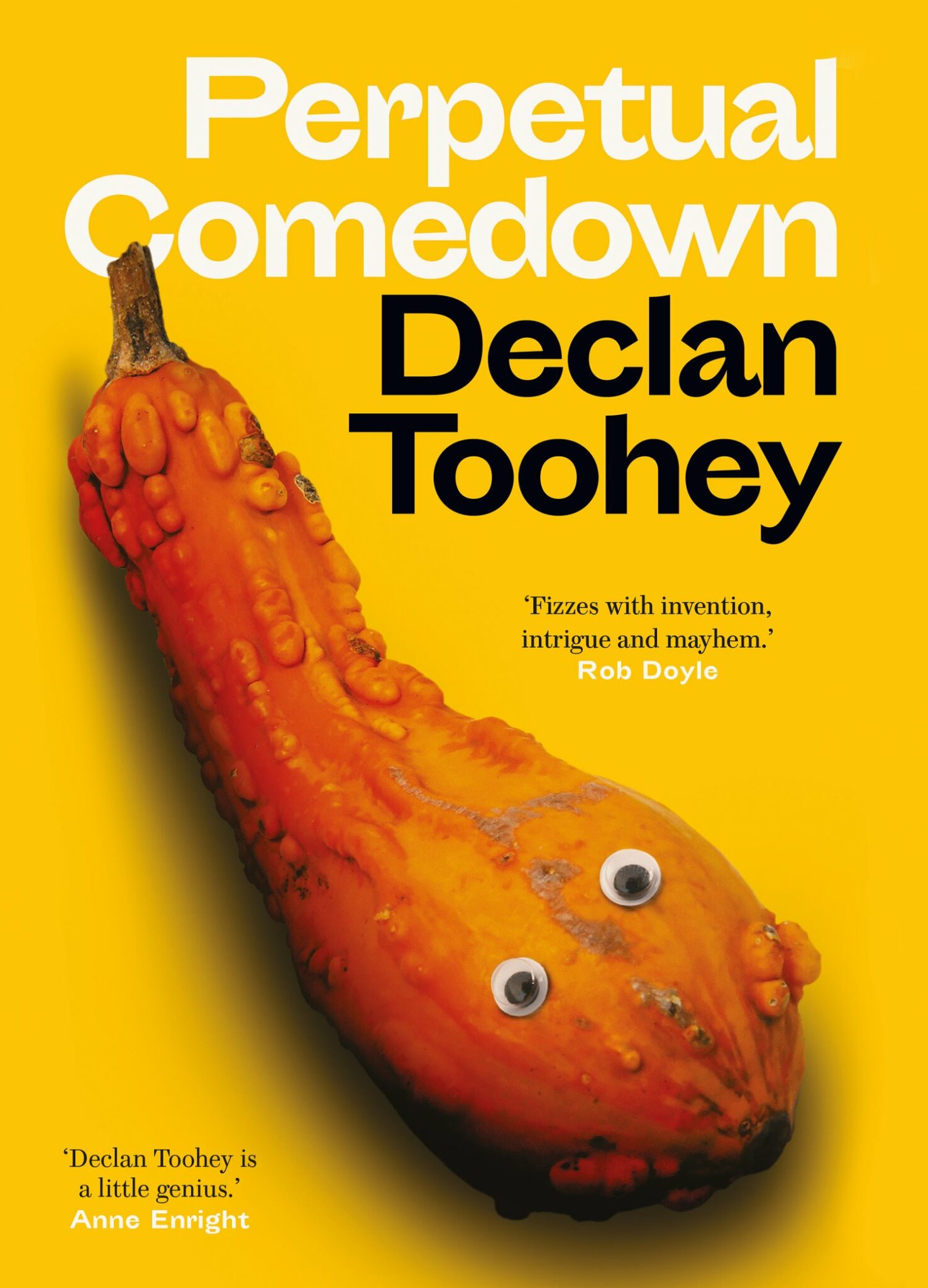
Front Cover of Perpetual Comedown by Declan Toohey
Published with New Island Books (2023)
Like Aingeala Flannery – another IWC Novel Fair winner and one of our previous interviewees – you undertook an MFA in Creative Writing in UCD. Was this before or after starting work on Perpetual Comedown? More generally, what effect – if any – did the programme have on your work?
Strangely enough, I received the acceptance letter for the MFA around the time New Island made an offer for Perpetual Comedown, which I’d planned to work on for the duration of the MFA. But, as it happened, I worked exclusively on a new novel while at UCD, and this was definitely for the best. However, even though no one in Belfield saw anything of PC during my time there, the programme definitely helped me to articulate what I was trying to do in the novel – and more importantly how best to bridge this gap between intention and outcome – so that when the edit came around I was in a much better position to start chopping and changing and pushing Darren Walton to the printing press.
That’s interesting. Did you have your sights set on the IWC Novel Fair throughout the process or did the submission window just happily coincide with the end of it?
A bit of both. I first became aware of the Novel Fair in 2018, about nine months or so before I started writing Perpetual Comedown. But, while working on it, I wasn’t thinking about where I’d send it: my primary concern was to finish it, and finish it well. The first draft came quickly, between May and July of 2019, but it was a pretty poor draft, so even when I made plans that September to submit it to the Novel Fair, I was still decimating old passages and generating new material the week I sent it off. In fact, up to December – when I got the call to say I was one of the winners – I was hard at work revising the middle section, which of all the book’s parts definitely gave me the most bother.
“…follow your novel’s voice, take a break to gain perspective, and listen carefully to your earlier drafts, because the answers to your problems are often hiding right in front of you.”
The IWC Novel Fair culminates each spring with an event where the twelve winners pitch their novels to agents and publishers. Do you remember what your pitch for Perpetual Comedown sounded like? It doesn’t strike me as an easy book to summarise.
You’re correct! But it was always going to be a tricky book to summarise, so I spent a long time crafting a 200-word pitch, and practicing it over and over until I knew it by heart and could perform it easily to agents and publishers. The core of it was that the book was an absurdist novel in which an Irish doctoral student tries to elucidate an elaborate conspiracy theory he stumbled across as an undergraduate, but in doing so he’s sucked into dark and dangerous territory. Then I focused more on the specific hinge points of the novel: Darren’s vain attempts to locate an alternate Ireland; his turbulent experience (spoiler?) with manic depression and psychosis; and, lastly, his discovery of a literary journal whose contents, on the one hand, prove his outlandish theories, but whose existence, on the other, is something in which only a madman could ever believe. And there it is: a perfectly straightforward novel; fun for all the family.
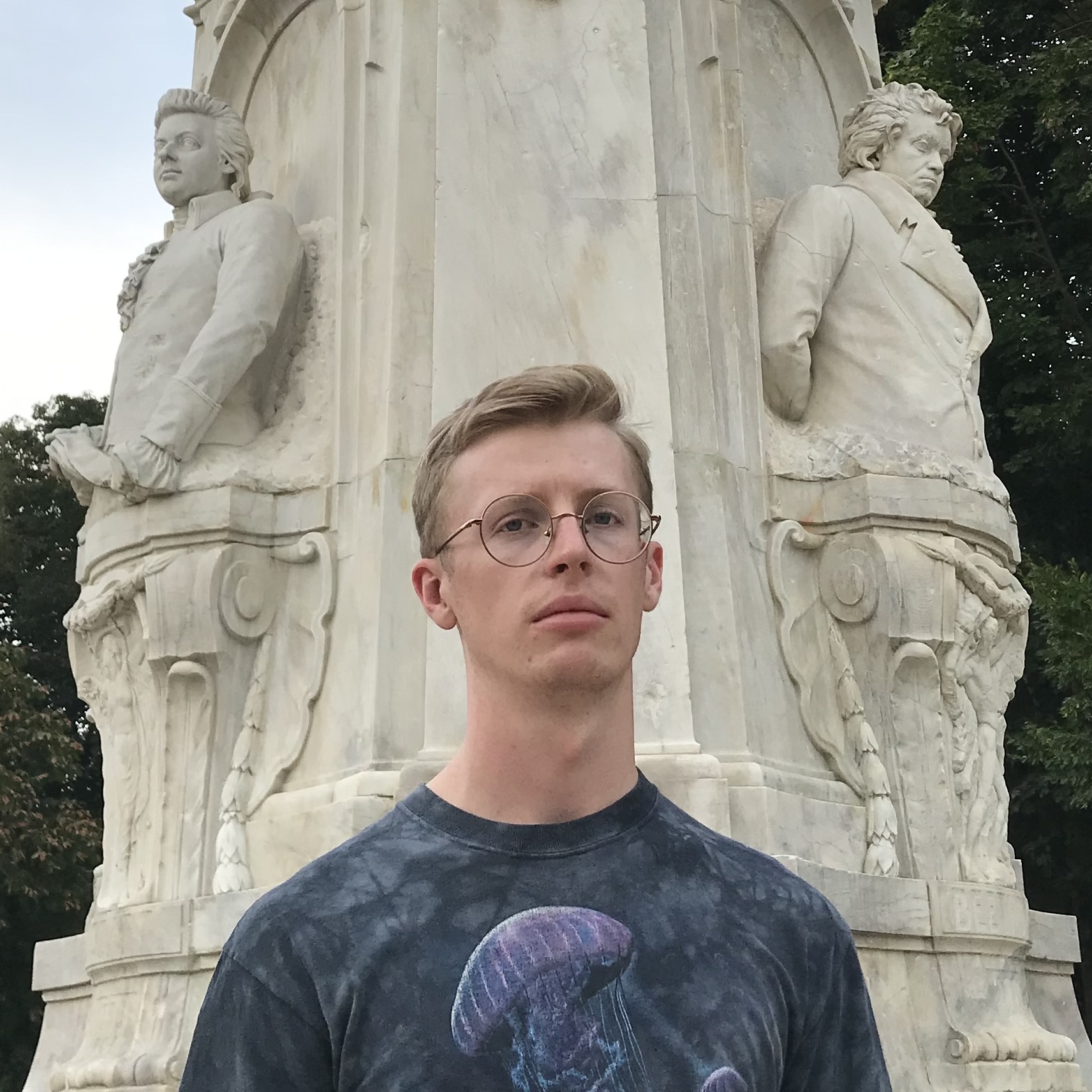
Headshot: Declan Toohey
You mentioned earlier that you prefer to work “in the dark” while in the early stages of a project. What advice would you give to IWC Novel Fair hopefuls who, perhaps like yourself, have managed to build up a large volume of material but are unsure how to go about editing it?
For me, when I’m editing something as unruly as a novel, even if my novels are short, the two biggest questions are ‘Am I happy with this on a sentence-level?’ and ‘Am I happy with this on a structural level?’ For the former, I need to make sure that every sentence and paragraph are stylistically consistent with the overall voice of the novel, and that voice has to lead the reader somewhere I think is complex, original, exciting, unpredictable. The latter question has to do more with the tedious technicalities of the form – are there three acts, how many words are in each act, do the primary characters change or grow, is there a wide range of emotions in the novel as a whole – and that’s always the one, for me, that requires the most work. But I also need a fallow period where I don’t touch the novel for months. Then I read the whole thing in a day or two and I listen very carefully to what it’s trying to tell me, which is usually a revelation of where the story should go – often where the story has wanted to go all along, but hasn’t been in a position to on account of my poor craftsmanship. The book I start with is never the book I finish with, and much of my process consists of me banging my head against a draft for months, wondering why it won’t do what I initially set out for it to do, but once I listen carefully to a draft after being away from it for a period, it usually opens up and pushes me in a new and fruitful direction. So, to the advice: follow your novel’s voice, take a break to gain perspective, and listen carefully to your earlier drafts, because the answers to your problems are often hiding right in front of you.
Back in February, you wrote an essay for the Irish Times detailing some of the inspirations behind the novel: your time in college, your love of absurdist novels, a breakdown you suffered a number of years back. The article ended with a question about whether or not the novel would be read as a work of autofiction. How has the reaction been since it came out? Have you had many people conflate you with Darren?
I don’t think anyone cares! Which I suppose can only be a good thing. Publishing a novel is weird, in that as soon as the finished book is in your hands it’s no longer yours. After that it belongs to the reader. And always will. And in a way, after that, you’re irrelevant. (When I talk about Perpetual Comedown, for example, I mostly feel like a spokesperson for a book someone else has written.) So it doesn’t concern or bother me what people think of Darren Walton, of his relationship to me, of whether I’m a little or a lot like him. (The answer, for what it’s worth, is both.) But I’ll admit that when I wrote the closing lines of that Irish Times piece, I was partly being cheeky in a bid to attract potential readers, but another part of me was saying: ‘Please believe me when I say I’m not as arrogant as Darren Walton.’ Which I find funny now because Darren would hate me for pandering like that, however implicitly, to anyone. And, what’s more, it was my goal from the beginning to create an unfiltered protagonist who, at any cost, would never sanitise his speech, thoughts or actions; who would never care for people-pleasing, of any kind, at any point. So maybe I’m a hypocrite. Who knows. Let the reader decide.
Read our previous interview with 2011 IWC Novel Fair winner and multi-published author, Kevin Curran.
Irish Writers Centre Novel Fair
The Irish Writers Centre Novel Fair, now in its twelfth year, is an annual competition that introduces twelve up-and-coming writers to top publishers and literary agents, giving novelists the opportunity to bypass the slush pile, pitch their ideas and place their synopsis and sample chapters directly into the hands of publishers and agents. At the annual Novel Fair 2-day event, winners will engage in a speed-dating-style set-up where each writer is given the opportunity to pitch their novel to approximately 20 publishers and agents.
Submissions to IWC Novel Fair are open annually during September (the next submissions period will be Sunday 1st September 2024 – Monday 30th September 2024) and will require applicants to submit a 10,000-word extract of the novel, as well as a 300-word plot synopsis. Entries are welcome from anywhere in the world.
Find out more about the Novel Fair here.

